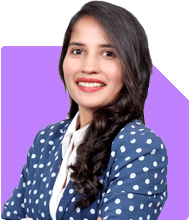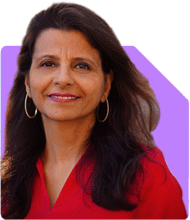I'm a 40-year-old woman struggling to lose belly fat. What are some effective strategies?
Shreya Shah | Answer |Ask -Follow
Nutritionist, Diabetes Educator - Answered on Jun 05, 2024
A Fit India ambassador, she has been helping individuals to manage thyroid, diabetes and other lifestyle problems with the right diet and nutrition plan for nearly a decade.
Shreya is a member of Indian Dietetic Association and has worked in Mumbai’s KEM Hospital and Bai Jerabai Wadia Hospital For Children and Thane’s L H Hiranandani Hospital where she has trained healthcare professionals and organised wellness workshops.
Shreya holds a bachelor's degree in science from Ramnarain Ruia College, Mumbai, and a post-graduate degree in dietetics from SNDT Women's University, Juhu, Mumbai.... more

how to reduce belly fat
- Post meal walk -15-20min
- Avoid processed & packaged foods
- Include good amount of vegetables & protein with the meal
- Reduce refined carbs in the diet
- Exercise regularly
- Quality sleep -7hrs
- Manage ur stress levels
You may like to see similar questions and answers below
Komal Jethmalani | Answer |Ask -Follow
Dietician, Diabetes Expert - Answered on Apr 19, 2023
Dr Karthiyayini Mahadevan | Answer |Ask -Follow
General Physician - Answered on Mar 26, 2023
Ramalingam Kalirajan |10908 Answers |Ask -Follow
Mutual Funds, Financial Planning Expert - Answered on Dec 20, 2025
Ramalingam Kalirajan |10908 Answers |Ask -Follow
Mutual Funds, Financial Planning Expert - Answered on Dec 20, 2025
Naveenn Kummar |237 Answers |Ask -Follow
Financial Planner, MF, Insurance Expert - Answered on Dec 20, 2025
Ramalingam Kalirajan |10908 Answers |Ask -Follow
Mutual Funds, Financial Planning Expert - Answered on Dec 19, 2025
Nayagam P P |10859 Answers |Ask -Follow
Career Counsellor - Answered on Dec 19, 2025
Ramalingam Kalirajan |10908 Answers |Ask -Follow
Mutual Funds, Financial Planning Expert - Answered on Dec 19, 2025
Ramalingam Kalirajan |10908 Answers |Ask -Follow
Mutual Funds, Financial Planning Expert - Answered on Dec 19, 2025
Ramalingam Kalirajan |10908 Answers |Ask -Follow
Mutual Funds, Financial Planning Expert - Answered on Dec 19, 2025
Radheshyam Zanwar |6751 Answers |Ask -Follow
MHT-CET, IIT-JEE, NEET-UG Expert - Answered on Dec 19, 2025
Radheshyam Zanwar |6751 Answers |Ask -Follow
MHT-CET, IIT-JEE, NEET-UG Expert - Answered on Dec 19, 2025
























